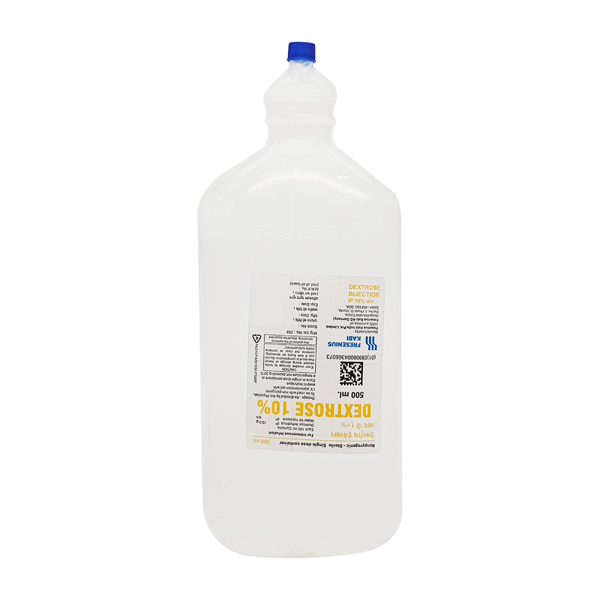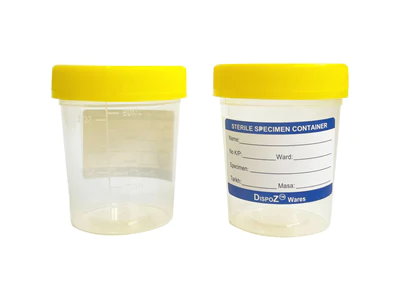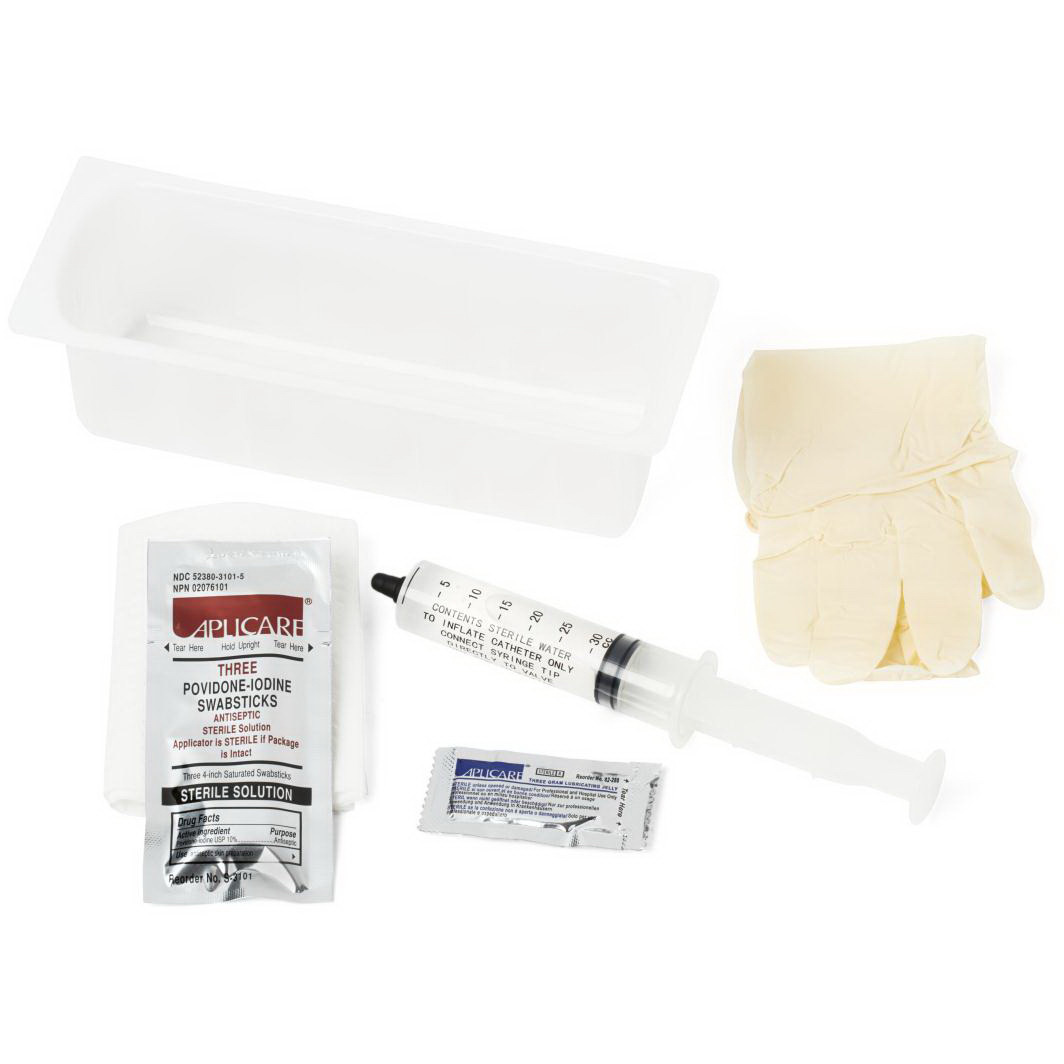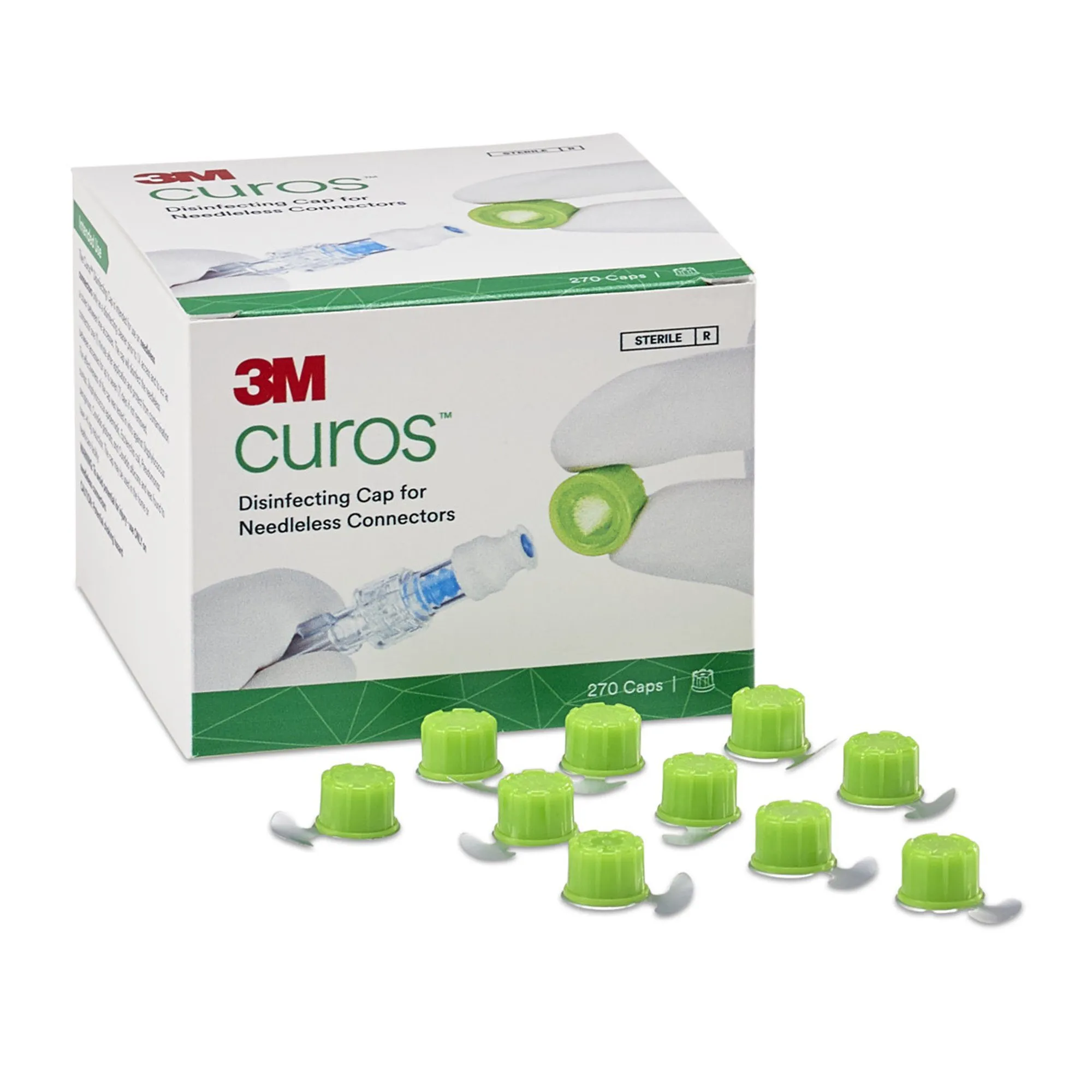DEXTROSE INFUSION 500MLS 10%
ZK1.00
DEXTROSE INFUSION 500MLS 10%
Description
DEXTROSE 10% contains Dextrose which belongs to the group of medicines called Fluids and Electrolytes. It is used in adults and in children as a fluid replacement therapy to provide energy and to prevent fluid loss (dehydration) from the body. It acts as a source of calories (for energy) and water (for hydration) for our body.
DEXTROSE 10% can also be used as a diluent (liquid used for mixing) for another medications (such as heart medicines, stomach medicines, brain medicines) before administration. DEXTROSE 10% will be administered to you only by your doctor or a nurse as a slow intravenous infusion (i.e., through veins).
Before DEXTROSE 10% is given to you, inform your doctor if you have any liver, kidney, or heart problems. You must also inform your doctor if you have diabetes, bleeding in the brain or spine, sugar intolerance, damaged veins, or a very low urine output before receiving DEXTROSE 10%. During treatment with DEXTROSE 10% your doctor will constantly monitor your blood sugar and electrolyte levels as a precaution.
DEXTROSE 10% should be used in pregnant or breastfeeding women only if it is considered necessary by the physician. The most common side effect of receiving DEXTROSE 10% is pain, irritation and swelling at the injection site. Place an ice pack on the injected site to ease the irritation. If the symptom did not improve, inform your doctor.
USES OF DEXTROSE 10%
It is used in adults and children to:
- Treat dehydration (fluid loss from the body)
- Provide energy and to restore fluid balance in the body
- Dilute other compatible medicines prior to administration (diluent)
HOW DEXTROSE 10% WORKS
DEXTROSE 10% contains simple sugars that provides energy to your body. Following administration, it replaces the fluids lost from the body and supplements your body with sufficient energy.
DIRECTIONS FOR USE
DEXTROSE 10% will be given to you only by a doctor or a nurse into the vein as a slow intravenous infusion. Your doctor will decide the correct dose and duration of therapy for you depending upon your age, body weight and health condition.
SIDE EFFECTS OF DEXTROSE 10%
COMMON
- pain, inflammation, irritation and swelling at the site of injection
- changes in electrolyte levels
- high blood sugar levels
- systemic infection or infection at the site of injection
RARE
Consult your doctor immediately if you experience any of the following side effects while receiving DEXTROSE 10%:
- formation of blood clot in the vein where the medicine is administered
- overhydration causing edema or fluid buildup in the lungs
- severe allergic reactions (such as abnormal rapid breathing, shortness of breath, low oxygen level in the blood, tightness of chest, increased heart rate, low blood pressure, bluish discoloration of the skin or nails, vomiting, nausea, headache, sweating, dizziness, altered mental activity, redness of skin rash, itchiness, fever, and chills etc.)
HOW TO MANAGE SIDE EFFECTS
Injection site reactions:
Place an ice pack on the injected site. Do not move the affected area frequently. If the symptom worsens, consult your doctor.
WARNING & PRECAUTIONS
PREGNANCY
DEXTROSE 10% should be used in pregnant women only if it is considered necessary by the physician. Therefore, inform your doctor before receiving DEXTROSE 10% if you are pregnant or think you may be pregnant.
BREASTFEEDING
DEXTROSE 10% should be used with caution in breastfeeding women. Therefore, inform your doctor before receiving DEXTROSE 10% if you are breastfeeding.
KIDNEY
DEXTROSE 10% should be used with caution in patients with kidney problems. Therefore, consult your doctor before receiving it.
LIVER
DEXTROSE 10% should be used with caution in patients with liver problems. Therefore, consult your doctor before receiving it.
ALLERGY
Do not receive DEXTROSE 10% if you are allergic to Dextrose.
HEART DISEASE
DEXTROSE 10% should be used with caution in patients with heart problems. Therefore, consult your doctor before receiving it.
OTHERS
DEXTROSE 10% is not recommended for use if you:
- have bleeding in the brain or spine
- are severely dehydrated with no urine output
- are severely malnourished
Before receiving DEXTROSE 10% inform your physician if you:
- have chronic uremia (toxin build up in the blood)
- have sugar intolerance
- have diabetes
- have vein damage or blood clot in the vein
Use in pediatrics:
DEXTROSE 10% should be used in infants, children, and in adolescents (aged between 0-18 years) under careful medical supervision. Proper dose adjustments and careful monitoring are required in such patients (especially in newborns with low birth weight).
Use in geriatrics:
DEXTROSE 10% should be used with caution in the elderly patients. Therefore, consult your doctor before receiving it.
INTERACTIONS
A. Drug-Drug interactions:
Before receiving DEXTROSE 10% inform your doctor if you are taking any prescription, non-prescription and over-the-counter medicines as a precaution.
Overdosage:
DEXTROSE 10% will be administered to you only by a doctor or a nurse in a hospital, and so it is unlikely to receive an overdose. However, consult your doctor or nurse if you experience any unusual symptoms.
SYNOPSIS
| Drug | : | Dextrose |
| Pharmacological Category | : | Simple Sugar |
| Therapeutic Indication | : | Dehydration, Hypoglycemia |
| Dosage Forms | : | Tablet, Injection, Powder |
MORE INFORMATION
- Keep DEXTROSE 10% out of reach from children
- Store DEXTROSE 10% at room temperature
- Discard the unused portion of the medicine
- Make sure that the solution looks clear before administration
FAQs ABOUT DEXTROSE 10%
What is the use of DEXTROSE 10%?
DEXTROSE 10% is used as a fluid replacement therapy to provide energy and to prevent fluid loss (dehydration) from the body. It can also be used as a diluent (liquid used for mixing) for another medications (such as heart medicines, stomach medicines, brain medicines) before administration.
Is DEXTROSE 10% safe?
DEXTROSE 10% is safe when used under proper medical supervision and at the prescribed doses.
What DEXTROSE 10% does to my body?
DEXTROSE 10% contains simple sugars that provides energy to your body. Following administration, it replaces the fluids lost from the body and supplements your body with sufficient energy.
What precautions do I need to follow while taking DEXTROSE 10%?
Before DEXTROSE 10% is given to you, inform your doctor if you have any liver, kidney, or heart problems. You must also inform your doctor if you have diabetes, bleeding in the brain or spine, sugar intolerance, damaged veins, or a very low urine output before receiving DEXTROSE 10%. Talk to your doctor before receiving DEXTROSE 10% if you are pregnant or think you may be pregnant.
How DEXTROSE 10% is administered?
DEXTROSE 10% will be given to you only by a doctor or a nurse into the vein as a slow intravenous infusion. Your doctor will decide the correct dose and duration of therapy for you depending upon your age, body weight and health condition.
Is DEXTROSE 10% safe for use during pregnancy?
DEXTROSE 10% should be used in pregnant women only if it is considered necessary by the physician. Therefore, inform your doctor before receiving DEXTROSE 10% if you are pregnant or think you may be pregnant.
Why DEXTROSE 10% is mixed with other medicines before administration?
It is because DEXTROSE 10% may also be used as a diluent which can dilute the concentration of other medicines before administration.






Reviews
There are no reviews yet.